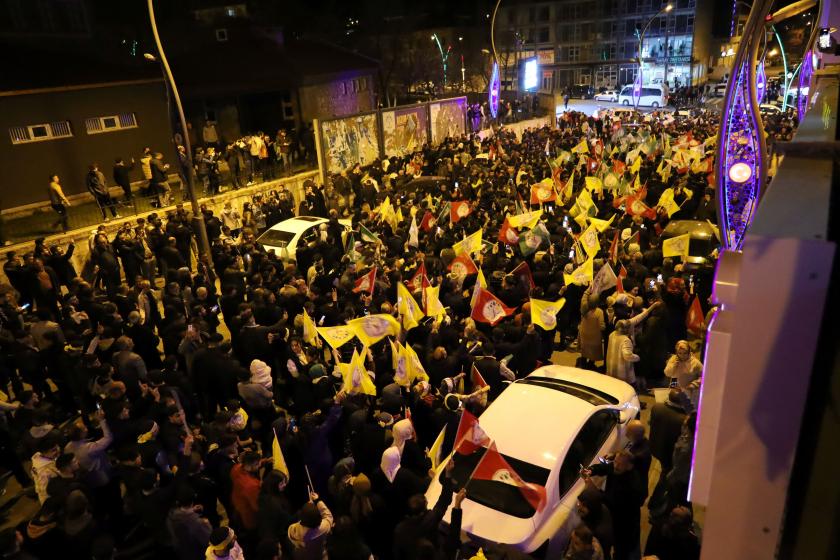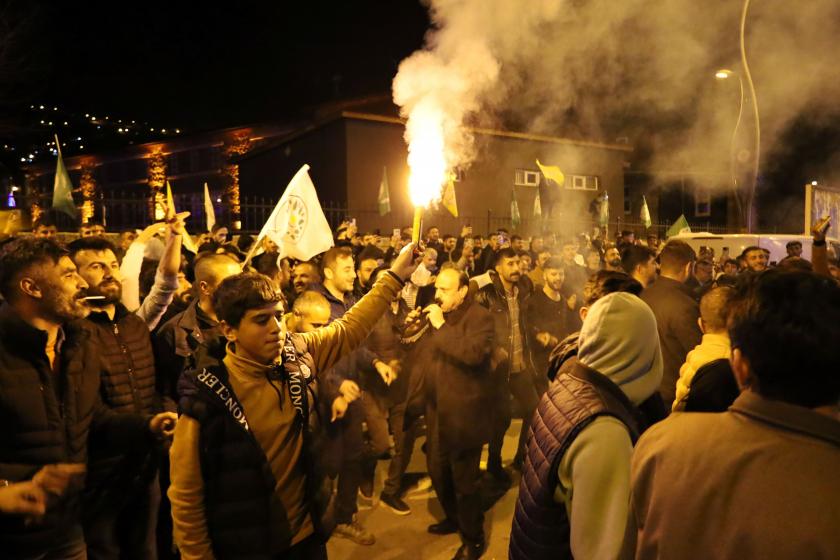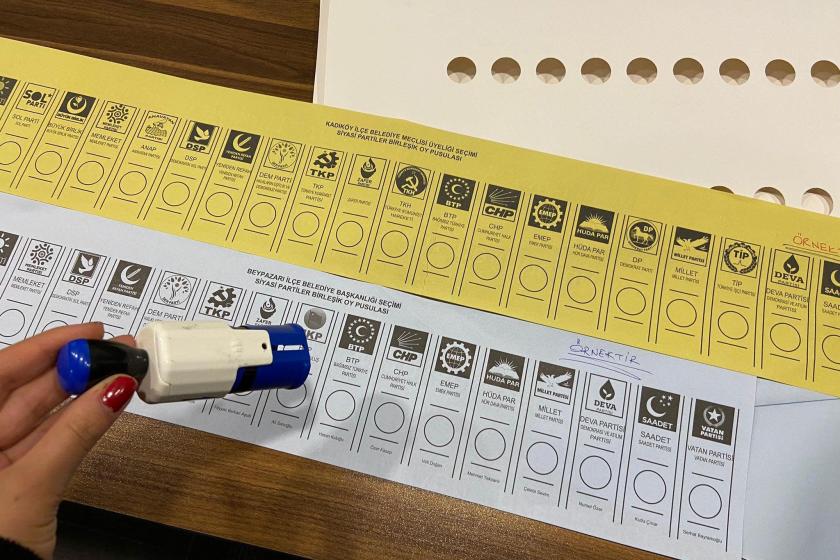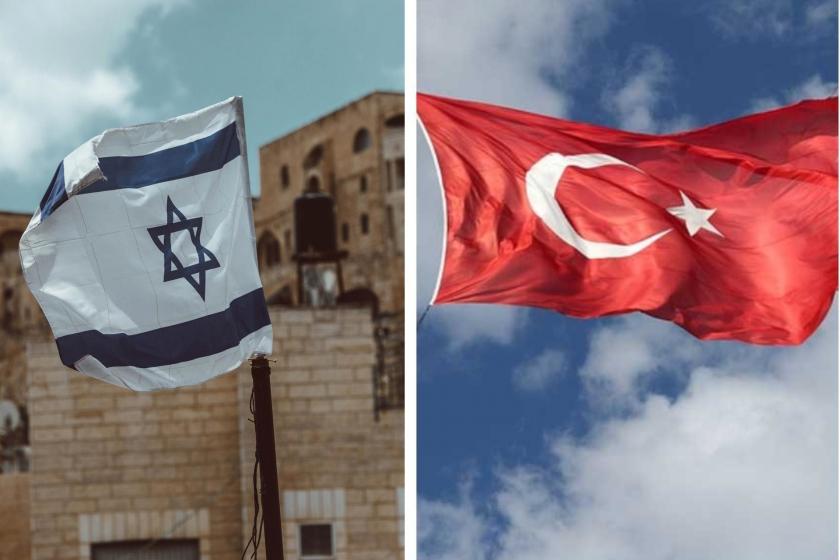Müslime KARABATAK
Berlin
Trade union membership and collective bargaining rights are under huge pressure as a result of coordinated attacks by the European Union, governments and bosses across almost entire Europe. Even in Western Europe and the northern countries, where trade union density is still over 50 %, workers are faced with the problem of restricting the rights of collective bargaining and strike rights, and also introduction and increment of precarious jobs.
In the meantime, the big companies in these countries are also shifting their productions to the countries where the collective bargaining rights are violated and where the labour is cheap. The trade unions are now discussing the limits of fighting only within national borders, and that the trade union organisation should be 'transnational'.
The German metal trade union IG Metall, Uni Europa, IndustriAll Europe, European Trade Union Institute (ETUI) and Friedrich Ebert Stiftung / FES organised a conference in Berlin on 6-8 September, “United and Stronger Together: Transnational Worker Participation - Building Stronger Unions".
Experienced workers, unionists, trade union organisers, trainers and researchers from 21 countries participated in the conference, the experiences were shared and the ways of the organisation were discussed.
International organising methods of the trade unions were addressed and the importance of organising workplaces was emphasised in various workshops and training.
Florentin Iancu, the chairman and organising expert of the SITT union in major IT companies like Accenture, Nokia (Alcatel-Lucent) and Wipro in Romania, stressed the importance of strategy and tactics in organising: "In Romania, national collective agreements were terminated in 2011. On the other hand, in order to be a legal representative of the trade unions, at least 50 + 1 member must be possessed. The SITT Union was founded in 2009 by the IT workers from scratch. We had problems such as subcontracting, low wages, and dismissal. Now we have around 3000 members.
In 2016 we started working with UNI Global. This taught us to think strategically and be a sector-based union rather than a company-based one. In 2017 we started organising the French company Atos, which has more than 2000 workers in Romania. Instead of the old tactics that would expose us like going to the front of the company and distributing leaflets, we have created a secret organisation committee of 40-50 people that we can trust in the company. This process, which lasted four months, was completely hidden. This committee started collective sign-up at the same time. When the company realised, they could not have time to get people dismissed. We have organised 1300 workers and the number is still growing. Our success was hidden in the implementation of the plan that this committee came together and every member of the committee had passed through a rigorous education. We are now at the collective bargaining table.
I want to underline the importance of organising training. We could build a large activist team in this way, and we could tell the workers the importance of unionisation and acting together. In the town of Timisoara, young workers say that 'another world is possible'. Every day they call us and say ‘Let’s organise our workplace, too’. “
The SITT Union has 3000 members in Timisoara, where 10 thousand IT workers are located.
Secretary-General of Trade Union of Industry, Energy & Mining of Macedonia Mare Anceva gave the following information in her speech at the end of the conference: "Macedonia was part of Yugoslavia, once known as a ‘workers' paradise'. We think that we do not need socialism after the disintegration of Yugoslavia. The workers-owned factories and workers councils were taken over by European and American investments which are enemies of trade unionism. Especially after 1991, we lost our organisation and rights. The rate of unionisation has fallen to 10 % in the country particularly over the last 10 years. This rate in the metal sector is around 30-35 %."
Luc Triangle, the European Secretary General of the IndustriALL, described the situation and the obstacles to the organisation of trade unions in Eastern Europe: "After the economic crisis, national, sectoral collective agreements were removed especially by the Troika policies. In addition, the level of social protection in Eastern European countries is very low. In Macedonia, for example, companies are hiring temporary workers for 5-6 months, but if they realise that the company has a tendency to unionise, then a one-month contract is made and the contracts of trade union leaders are not renewed. Precariousness has become a standard there. Governments are promising foreign investments a ‘trade union-free’ business.
One of our biggest problems is the formation of strong unions. There are very few members in some trade unions; as if the total number of members is less than the total number of unions. We need to take lessons from successful projects. We need to focus on organising, we have to know the companies well and we have to train the organisers. We have examples of BOA, COZZ, Vasas, etc. Food, textile and clothing sectors in Eastern Europe have very low wages and working conditions are very poor. We need to take steps to change them. Meanwhile, those interested in working conditions are not only unions but also some local organisations in some countries. We must build relationships with them, as well.
Although Finland is seen to be ‘heaven’ for workers since the membership density is around 70%, Helena Vähä-Ruka and Pinja Saarenkanski, the organising experts in PAM, the trade union in the service sector in Finland, say that workers' rights are being attacked in their country:
"Political atmosphere is entirely against workers, the right-wing administration and the bosses want to get the benefits of the workers for the last 10 years. The bosses are very organised. Finland is a very expensive country, so it is not a luxury with high wages. But the bosses are still trying to make a deduction. The law is not an obstacle in front of the workers, but the reality is not so. Zero hour contracts are being implemented and regular jobs are not being provided. Workers are forced to condone all the injustices not to lose their jobs. Most of the workers in restaurants and shops are young workers and mostly part-time workers. It is very difficult to organise them because they do not work continuously.
Membership and density in the unions are gradually falling. We have forgotten to organise, we need to remember again. Members are seen as customers, unions as insurance companies. They do not feel it is necessary to take action because if there is a problem, the union is running for help. But we need members to act. With UNI Global's training, workplace representatives and workers learn that the trade union is not the office but the workers' organisation.
In terms of women rights, there are equal rights in the law, but if a man earns 1 Euro, for example, a woman earns 80 cents, even if she does the same. The situation of Finnish women is perhaps better than in other countries, but they may lose their previous positions when women return to their jobs after a family leave or maternity leave. As if a punishment is given ... These injustices must be resolved."
The Baltic Organisation Academy (BOA), which includes former Soviet republics, now governed by right-wing governments, and the northern countries where the organising rates are relatively high.
Central European Organisation Centre (COZZ), founded by UNI Global in Poland, Hungary, Slovakia and the Czech Republic, where some organisation methods are developed.
The International Partnership Initiative (TPI), which UAW from America, Vasas from Hungary and IG Metall from Germany founded the German automotive companies and suppliers, which shifted their production to the South of the USA and Hungary, where low-wage and anti-union policies are commonplace. By establishing German-type workplace councils, this partnership aims to increase the representation of the workers, raise the wages and acquire the right of the collective bargaining in these countries.
T-Mobile, a joint campaign of UNI Global and the German union ver.di, is organising the workers in Deutsche Telekom, one of the largest telecommunication companies, and other related companies in the United States and various European companies.
GERMANY
Alex Spies, working at Kirchhoff Automotive, is a member of IG Metall. Spies is working in a department of 550 workers in the factory of 9000 workers. Being in the 'workers' council, Spies says 60 % of the company is organised in IG Metal. The problem they are experiencing is that the company is shifting some parts to other countries where the workforce is cheaper. Apart from Germany, Kirchhoff Automotive also has workplaces in Poland, Hungary, Romania, Ireland, Spain, Canada, Mexico, China and the USA. Alex Spies supports IG Metall's union partnerships in the US and Hungary: "The organisation of workers in those countries is also important for German workers. Thus, the organisation of the two sides can be preserved and increased."
POLAND
Agnieszka and Aneta, workers at Multi Packaging Solutions in Poland, also attended the conference. Aneta works in post-press, Agnieszka is in the press. There are 250 workers in their workplace and 103 of them are members of their trade union ZZP which organises the printing, graphics and packaging workers. According to Aneta and Agnieszka, working 12 hours a day, 6 days a week is both disrespect and exploitation to their private life. But the most uncomfortable thing about them is the bad behaviour of the factory management.
Agnieszka says that especially women workers have been treated badly. They say that they paid less compared to male workers’ wages. Stating that young women are more members of the union than the elderly, Aneta was initially sceptical of the union: "I did not believe we could succeed," she says, but then she realised how powerful they could be when they were united in the meetings.
Dr Sören Niemann-Findeisen (International Department of IG Metall): The trade unions cannot resolve the problems such as the organisational downfall and the attack on the collective bargaining rights on their own. To influence society to the scale needed to reverse this trend unions need partners to form coalitions with - probably beyond the traditional set relatively pro-union parties. Trouble is that in a number of countries in the Eastern part of the EU right-wing parties have successfully hijacked social issues where the presumably social democratic parties have been falling or had become advocates of neoliberalism. I do not see any solution within a short span of time but rather a combination of social movements and resulting changes in politics bit by bit to change the picture.
Erkan Ersoy (UNI Global Europe Organisation Director): The trade union movement and working class structures in their current form cannot respond to the crisis of labour. We must start to think bigger and we must do it really fast. Most unions try to address the issue of declining membership without realising that this is a symptom of a deeper problem that it has been created within last 50 years. Most unions forgot to use their industrial muscle, therefore, they are weak and losing membership and collective bargaining rights. Most of them shaped themselves as service providing organisations almost like insurance companies. Trade unions are not insurance companies. They are in their core collective power of workers.
Almost all the negotiations across the world done in the name of workers without involving them in the decision-making process at all. A few syndical bureaucrat decides what will be put on the negotiation table and they decide on the outcome. This kind of macho service union mentality is the main source of declining power. Working class do not need heroes to save them. We must involve workers as active decision-makers in the collective bargaining process and also make sure that they take the ownership of this process and link the collective power to union membership. This is the link we are missing. Most of the time majority of workers do not have any idea what has been negotiated let alone being able to vote on the outcome of the negotiations.
We must build sectoral structures across the countries, regions and globe to coordinate sector-wide campaigns at all these levels. We know that wage levels and terms and conditions equalise themselves at a sectoral level. If bosses are more organised within that sector then they will push the wages down if the workers are more organised at a sectoral level then they will push the wages up for the entire sector. We have to take the historical responsibility and understand that we are part of a fight which takes many forms; economic, political/legal, ideological and social and working-class movement is at the heart of all of these fights. This fire was started by workers hundreds of years ago and they forged themselves during these battles as a conscious class. Let’s rebuild this consciousness in the struggle again and transform the society for good.
Rafal Tomasiak (Director of the Central European Organisation Centre-COZZ): I think one of the biggest problems is that we have not used the relatively stable and prosperous years as a trade union movement to accumulate more political power. Another thing is we adapt to changing conditions and make decisions slower than the capital (cost of being democratic), and too often we decide not to take action (cost of staying united). How to resolve? Using limited resources better… Spending more on organising. We will not only earn members, we will also accumulate leaders, active members, public support; we will educate society, and we will ensure workers' confidence in themselves.
Marika Varga (IG Metall Transnational Project-Hungary): Syndicates should support each other and learn from each other. Members must share their successful experiences in building active structures. They need to coordinate their work in local and global chains by building international structures and bringing together workers who are trying to be raced by the bosses around the same topics. Workers should also be included in the negotiations. The syndicates should analyse the cause of their weakness honestly and develop new strategies. The most important thing is to clearly identify and discuss the problem, to think strategically and to train.



